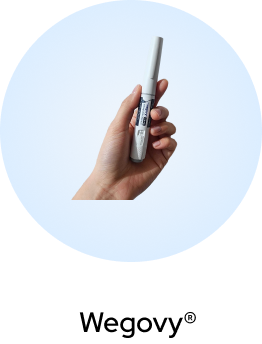If you’re contemplating the initiation of Ozempic, a medication developed by Novo Nordisk, you might be curious about the tangible impact it could have on your life, especially if you’re dealing with obesity or type 2 diabetes.
Research, real-life experiences, and even celebrities have demonstrated that Ozempic can be a transformative drug for managing these conditions, enhancing overall health, and leading to significant weight loss. Social media stories and reviews have added to the popularity of this treatment.
This article will delve into:
- What Ozempic is
- Real-life before and afters of individuals who have utilized Ozempic
- Situations prior to Ozempic
- What transpires during your Ozempic treatment
- Actions to take post-Ozempic treatment
- The potential enduring advantages of Ozempic
- Possible complications following Ozempic treatment
- Frequently asked questions.
Ready to explore? Let’s dive in!
What Is Ozempic?
Ozempic, marketed by Novo Nordisk, is the brand name for semaglutide. It’s also known as Wegovy or Rybelsus.
Is Ozempic prescribed for weight management?
Initially developed for treating type 2 diabetes, it’s now prescribed to people with a BMI over 27 for weight management.
Semaglutide can also aid in reducing cardiovascular health risks, such as heart attacks, strokes, high blood pressure, and even death.
A 2020 study revealed that semaglutide significantly enhanced participants’ quality of life, along with improved A1C compared to the placebo group. A 2022 study also demonstrated a significant reduction in mass index and waist circumference, akin to the results of bariatric surgery.
For those prescribed Ozempic for weight loss, lifestyle changes are necessary to optimize results. This involves adopting a healthy diet, consistent exercise, and possibly therapy.
Currently, there are no known shortages of semaglutide in Canada. However, it’s vital to recognize that unless prescribed for type 2 diabetes treatment, your health insurance may not cover the cost, potentially limiting access to the drug.
How Does Ozempic Work?
Ozempic acts as a GLP-1 (Glucagon-Like Peptide-1) agonist, mimicking the effects of the GLP-1 hormone in your body, which plays a role in blood sugar and appetite control.
When injected into the body, Ozempic slows digestion and gastric emptying, prolonging feelings of fullness. This can lead to a decrease in food intake and a subsequent increase in weight loss. You can read more about the effects of Ozempic for weight loss here.
Semaglutide also helps regulate blood sugar levels and suppress hunger in the brain, making it a promising treatment for weight management, especially when combined with other lifestyle changes.
Ozempic Before and Afters from Reddit
A vibrant Reddit community exists where people using Ozempic for weight management share their experiences and seek advice. Some have even shared their experiences on social media platforms, and celebrities have endorsed the drug, increasing its popularity.
Here are a few before and after stories from the Ozempic Subreddit:
- A male Redditor lost an impressive 116.5 lbs after a year on Ozempic, combining it with a calorie-restricted diet and exercise regime, continuing to lose weight even after ceasing the medication.
- For women, a female Redditor lost 40 lbs in 5 months on Ozempic, dropping from 195 to 155 lbs. She shared that before the drug, she had tried everything to lose weight without success.
- Another Redditor dropped from 222 to 174 lbs, stating that Ozempic “literally changed my life.” She experienced some initial side effects, but they subsided as her body adapted to the medication.
You can find more real-life stories and Ozempic reviews here.
Situation Before Starting Ozempic
Ozempic is not for everyone. It’s a prescription medication, and you’ll need to be using it to manage type 2 diabetes or have been prescribed it for weight management if your BMI is over 27.
Conditions and Eligibility
In Canada, Ozempic is approved for those with type 2 diabetes or considered obese (i.e., BMI over 27). The FDA has also approved Ozempic for these uses.
Your healthcare team will discuss your previous weight loss efforts and ensure that Ozempic is safe for you. Personal health concerns or contraindications may disallow you from commencing Ozempic.
Preparation
Before starting Ozempic, make sure you’ve learned everything you can about the drug so you have a thorough understanding of how it works. The dosage, how to administer it, and what to do to ensure you get the best possible results all matter in achieving success with this treatment.
If you have questions, consult your medical team. Understanding the things involved in the treatment can make a lot of difference in the results.
Possible Side Effects
Ozempic may cause side effects, including:
- Nausea
- Diarrhea
- Constipation
- Stomach discomfort
- Decreased appetite
- Headache
- Fatigue
More serious but rare side effects include hyperglycemia, vision changes, kidney problems, pancreatitis, and thyroid cancer. If you experience any severe side effects, stop using Ozempic and seek medical help immediately.
Risks & Benefits
The potential risks and benefits of Ozempic must be carefully weighed.
One side effect of Ozempic is appetite management, reducing cravings and food intake, leading to a reduction in BMI and aiding in weight management, especially when paired with a healthy diet and regular exercise.
However, significant risks include the side effects listed above, so it’s crucial to consider whether the potential benefits outweigh these risks.
Discussion with Healthcare Provider
A thorough discussion with your healthcare provider before beginning treatment is vital. This includes discussing your medical history, weight goals, current medications (including insulin or Metformin), and lifestyle habits.
Your healthcare provider will explain the drug’s workings, administration, and possible side effects. Regular follow-up appointments will be necessary to monitor the drug’s effectiveness and adjust your dose.
Lab Tests Pre-Treatment
Before starting Ozempic, your doctor may order several lab tests, including blood sugar levels, A1C, kidney function, and others, to establish a baseline and identify any concerns that could affect your treatment.
Lifestyle Changes Recommended by Healthcare Provider
While Ozempic can be an effective tool in weight management for those with a BMI of 27 or over, it must be combined with lifestyle changes.
A low-sugar, high-fiber diet is an excellent start, as is incorporating regular exercise. Therapy or counseling can also be beneficial in ensuring a healthy approach to weight management, maximizing the benefits of Ozempic treatment.
During Treatment With Ozempic
Treatment with Ozempic requires careful attention to dosage, side effects, and overall health monitoring.
Dosage Instructions and Frequency of Injections
Ozempic is taken in injectable form, once a week, using an Ozempic Pen (similar to an EpiPen). These injections are self-administered with an Ozempic Pen, and the frequency and times of injections should be carefully followed as per your healthcare provider’s instructions.
You’ll usually start with a dosage of 0.25mg per week for the first four weeks, then move to 0.5 mg per week. The maximum dose maybe 2mg. Your healthcare team will assess you for any further adjustments. Your healthcare team will assess you to see if any adjustments to the amount are needed.
Managing Side Effects
Common side effects like nausea, diarrhea, constipation, and headaches can occur. Over-the-counter medicines may help manage these symptoms, but always consult your healthcare provider before taking additional drugs.
Drinking plenty of water, eating smaller meals, and getting ample rest may also help manage minor side effects.
Regular Check-Ups With Healthcare Provider
Regular check-ups are essential when using Ozempic. Your healthcare provider will assess your weight management progress, monitor your blood sugar levels, and discuss any side effects you might be experiencing.
Adjustments to Dosage as Necessary Based on Results
Your Ozempic dosage may need adjustments based on changes in body weight, blood glucose levels, or side effects.
After Ozempic Treatment
Post-Ozempic treatment, maintaining a healthy lifestyle is crucial to sustain weight loss. This includes following a balanced diet, engaging in regular exercise, and continuing to monitor blood sugar levels and manage your weight.
Follow-Up Visit With Healthcare Provider
A follow-up visit is essential to assess overall health, review any lingering side effects, and evaluate the long-term impact of the medication.
Ozempic Before and After Photos
Visual evidence of Ozempic’s results is available online, with before and after pictures showcasing the outcomes of Ozempic treatment.
What Long-Term Benefits Can I Expect from Ozempic Treatment?
Long-term benefits of Ozempic include improved control over blood sugar levels, sustained weight management, reduced BMI, and waist circumference, especially when combined with healthy lifestyle changes.
Potential Complications After Using Ozempic
Potential complications include unpleasant side effects, pancreatitis, kidney damage, vision changes, thyroid cancer, and the risk of rebound weight gain if lifestyle changes are not maintained.
Key Takeaways
- Ozempic is highly effective for treating type 2 diabetes and weight management for those with a BMI above 27.
- Regular monitoring of weight, side effects, and blood glucose levels is vital.
- Pairing Ozempic with a healthy diet and regular exercise enhances results.
- Maintaining healthy lifestyle changes post-treatment is key to long-term success.
Ozempic Before and After FAQs
How soon can I see results from Ozempic?
Results vary; some see effects instantly, while others take months. Most report results within a few weeks.
How fast can I lose weight with Ozempic?
Data on weight loss speed with Ozempic varies. One study found an average 15% body weight loss within 16 months, compared to a 2% loss in the placebo group.
What are the long-term results of Ozempic?
Conclusion
Ozempic has emerged as a revolutionary treatment for type 2 diabetes and weight management. Its effects on appetite control, blood sugar regulation, and weight loss have made it a popular choice among doctors and patients alike.
However, like all medications, it comes with potential side effects and risks. Careful consideration, consultation with healthcare providers, and adherence to prescribed guidelines are essential for achieving the best results.
The experiences of those who have used Ozempic, shared on platforms like Reddit and social media, provide valuable insights into the real-world impact of this drug. The stories, reviews, and even endorsements by celebrities have contributed to its growing reputation as a game-changer in the fields of diabetes management and weight loss.
With proper guidance, lifestyle changes, and a commitment to the treatment plan, Ozempic can indeed change lives. It’s not just a medication; it’s a way to a healthier life. If you’re considering Ozempic, consult with your healthcare provider to determine if it’s the right choice for you.



















 (US)
(US)



